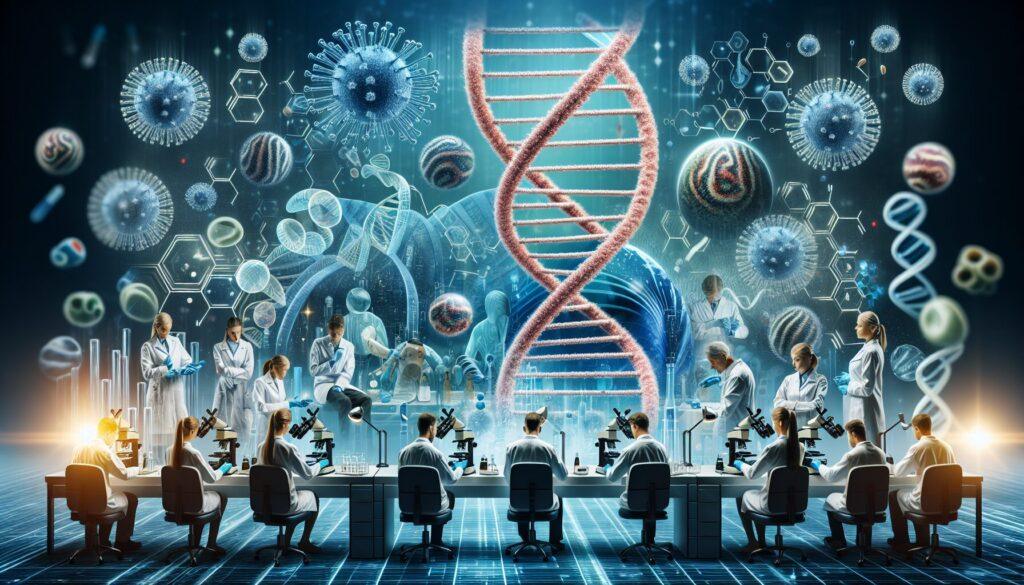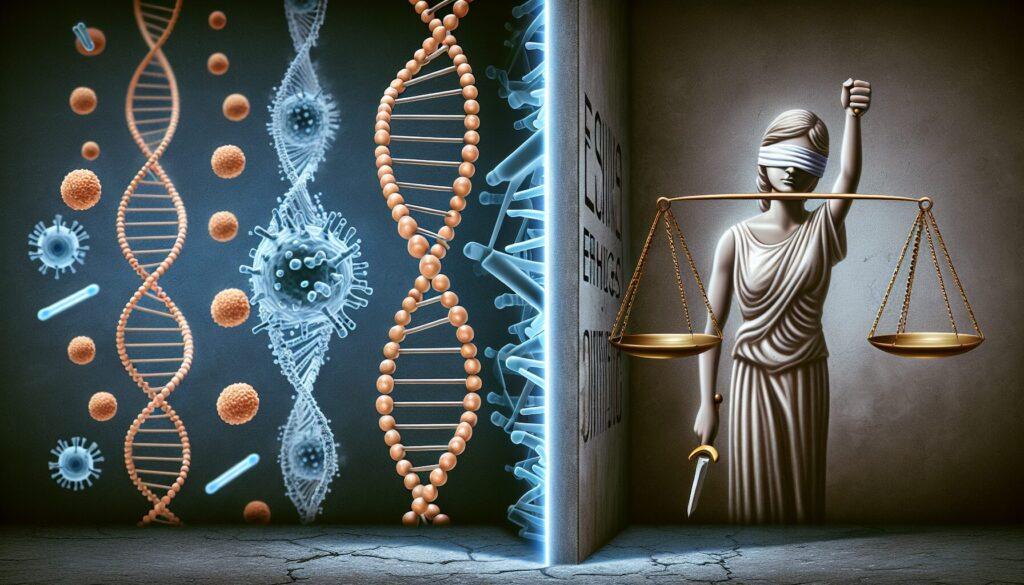Genetic Engineering
As we delve deeper into the realm of genetic engineering, the concept of AI personalization takes on a new dimension. By leveraging the power of artificial intelligence, scientists and researchers can now analyze vast datasets of genetic information with unprecedented speed and accuracy.
This enables the tailoring of medical treatments and therapies to the individual genetic makeup of a person, ushering in an era of personalized medicine that promises to revolutionize healthcare.
AI’s predictive capabilities not only enhance our understanding of genetic disorders but also help in anticipating how patients might respond to certain treatments, minimizing the risk of adverse reactions and improving the efficacy of medical interventions.
Hey there! So, you’ve most likely heard quite a bit about genetic engineering and gene modifying, proper? These phrases pop up in the information, science reveals, and even informal conversations. But what do they imply, and how are they different? Let’s dive in and break it down collectively.
Genetic Engineering vs. Gene Editing: A Quick Overview
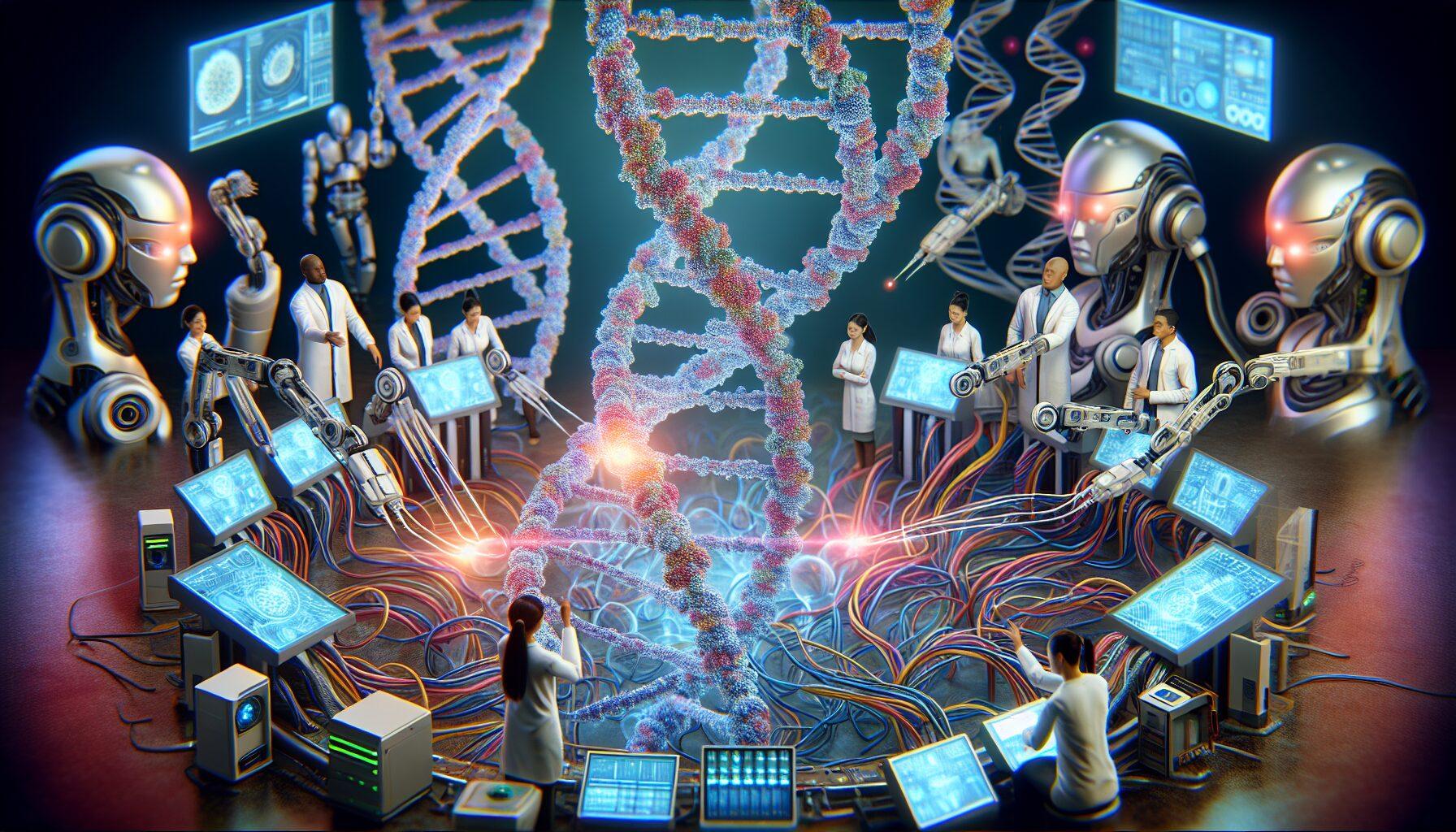
Genetic engineering is a broad term that encompasses a variety of techniques used to manipulate the genes of an organism. It’s like having a toolkit where scientists can insert new genes, remove existing ones, or even shuffle them around to achieve desired traits. This process can involve the transfer of genes from one species to another, creating what are known as transgenic organisms.
On the other hand, gene editing is a more precise method, akin to using a scalpel to tweak the organism’s genetic material. Techniques such as CRISPR-Cas9 allow scientists to make specific changes at exact locations in the DNA sequence, potentially correcting genetic disorders or enhancing certain characteristics without introducing foreign DNA.
When it involves altering genes, both genetic engineering and gene modification play a role; however, they accomplish that in distinctive methods. Imagine genetic engineering as the broad-stroke artist, portraying completely new landscapes, whereas gene modifying is like an exact sculptor, making small, detailed modifications.
Genetic Engineering: The Broad Artist
Gene Editing: The Precision Sculptor In the realm of gene editing, tools like CRISPR-Cas9 have revolutionized the field by offering unprecedented precision. This technique functions almost as a molecular scalpel, allowing scientists to snip and replace specific segments of DNA with remarkable accuracy.
Such finesse enables the correction of genetic defects at the source, potentially curing diseases without the need for broader, more invasive interventions. This sculpting at the genetic level paves the way for personalized medicine, where treatments can be tailored to the individual’s unique genetic makeup, minimizing side effects and enhancing therapeutic outcomes.
Genetic engineering includes taking a gene from one organism and placing it into another. It’s like swapping an ingredient in a recipe to create a brand-new dish. This approach has been around for many years and is used to create genetically modified organisms (GMOs). Think of crops that are proof against pests or have longer shelf lives.
Gene Editing: The Precise Sculptor
Gene editing, particularly with the advent of CRISPR-Cas9 technology, has revolutionized our capacity to make precise alterations in the DNA of living organisms. This tool acts like molecular scissors, allowing scientists to snip and replace specific sequences with an accuracy that was previously unimaginable.
The implications of such precision are vast, ranging from the potential to eradicate hereditary diseases to enhancing crop resilience in the face of climate change, thus opening up a new era of genetic possibilities and ethical debates.
On the flip side, gene modifying is all about precision. It’s extra, like modifying a doc, the place you tweak a phrase or sentence to vary the meaning. CRISPR expertise is a well-liked software right here, permitting scientists to make particular modifications at actual areas in the DNA sequence. This can be utilized to appropriate genetic defects or improve certain traits.
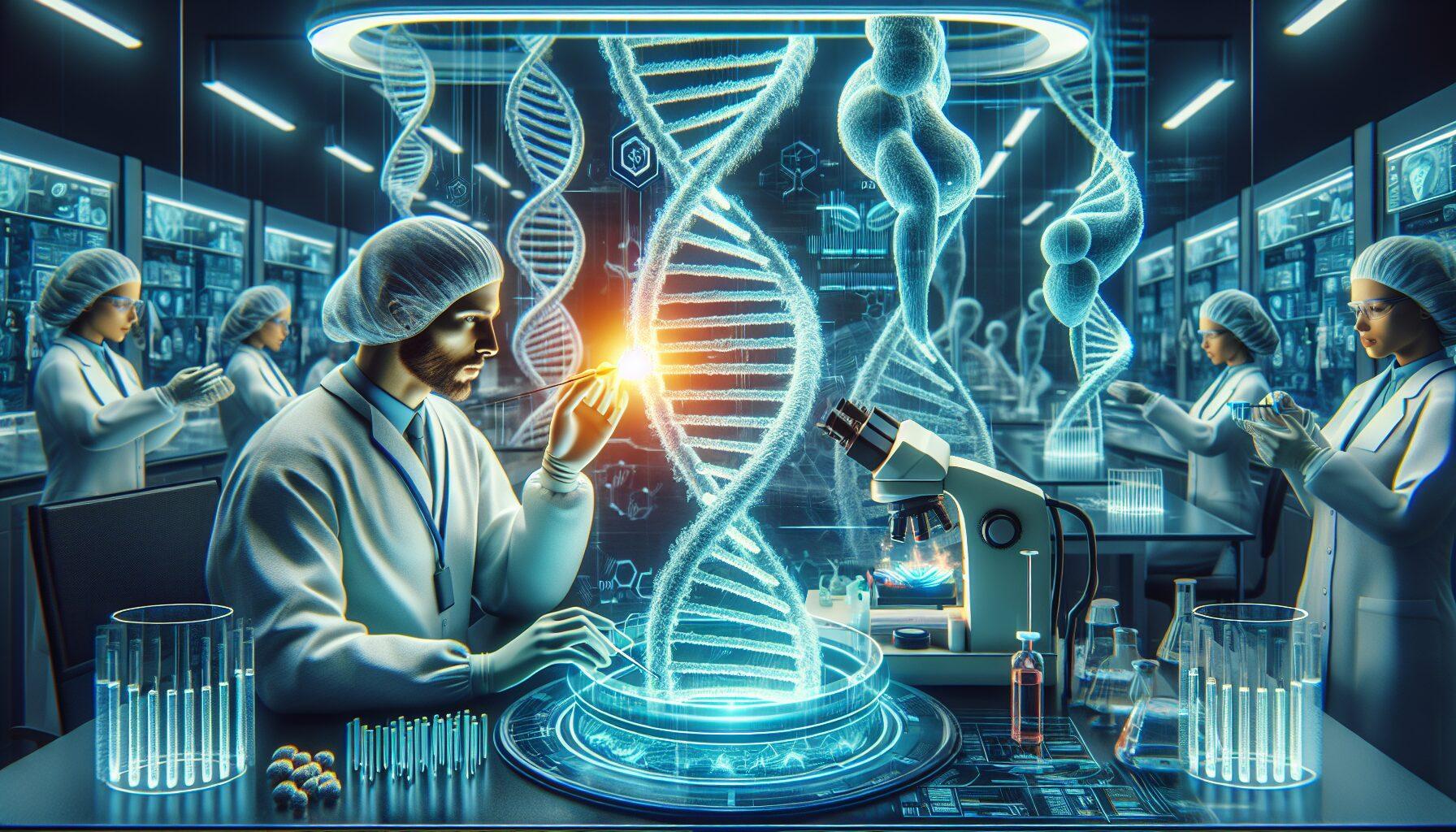
💡 Fun Fact Box:
Did you know that the first genetically engineered crop was the Flavr Savr tomato, designed to have an extended shelf life? Talk about staying contemporary!
Real-World Examples
In the realm of digital experiences, AI personalization is revolutionizing the way we interact with technology. Much like the precision of gene editing, AI tailors online experiences to our unique preferences and behaviors.
By analyzing vast amounts of data, AI algorithms predict what content, products, or services will resonate with us, ensuring that every digital interaction feels as though it’s been handpicked just for us. It’s like having a digital concierge at our fingertips, constantly learning and adapting to deliver a bespoke experience that’s as unique as our DNA.
Let’s discuss some real-world functions to make this extra relatable:
1: Genetic Engineering Example: Imagine walking into your favorite coffee shop, where the barista knows not just your name but also your preferred drink, down to the exact temperature and level of sweetness. Now, apply that level of personalization to genetic engineering, where AI systems can analyze your genetic makeup to tailor medical treatments and wellness plans that are specifically designed for your body’s unique needs.
This isn’t just about combating illnesses; it’s about preemptive health management, ensuring you receive the optimal diet, exercise, and lifestyle recommendations to keep you at the pinnacle of health, based on your genetic profile. The improvement of insulin. Scientists used genetic engineering to introduce human insulin genes into microorganisms, which then produce insulin utilized by diabetics.
2: Gene Editing Example: With the advent of CRISPR-Cas9 technology, gene editing has leaped from science fiction to reality, offering unprecedented precision in the modification of DNA. This tool has been instrumental in the potential treatment of genetic disorders, allowing scientists to remove or replace faulty genes with remarkable accuracy.
The implications of such advancements are profound, promising a future where hereditary diseases could become a thing of the past, and personalized medicine becomes the norm, tailored to each individual’s unique genetic makeup.
The potential treatment for genetic problems. Researchers are utilizing gene modification to focus on and doubtlessly appropriate mutations that trigger ailments like cystic fibrosis or sickle cell anemia.
Why Does It Matter?
As we delve deeper into the era of personalized medicine, the implications for patient care are profound. By harnessing the power of AI to analyze vast datasets of genetic information, healthcare providers can predict with greater accuracy which treatments will be most effective for each patient.
This not only enhances the efficacy of therapeutic interventions but also significantly reduces the risk of adverse reactions, ensuring a safer and more streamlined path to recovery. With AI-driven personalization, the one-size-fits-all approach to medicine is rapidly becoming a relic of the past.
Understanding these ideas is essential as a result of their forming our future. From agriculture to drugs, these applied sciences have the energy to influence how we dwell, what we eat, and how we heal.
🌟 Tip Box:
If you’re interested in how these applied sciences may affect you, take into consideration the meals on your plate or the medical therapies you may want. These improvements are nearer to the house than you may suppose!
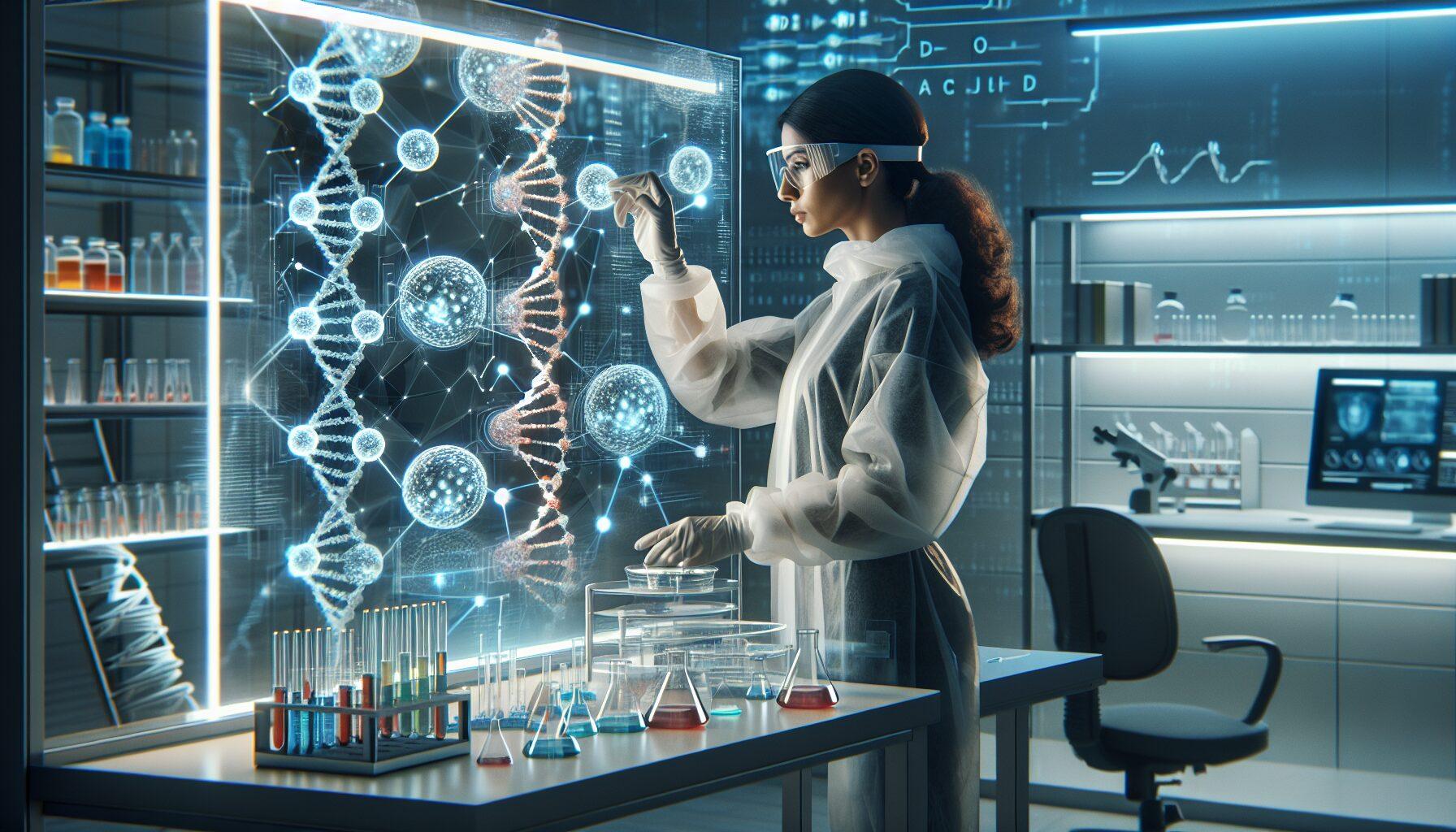
Engage with Us!
As AI continues to advance, the concept of personalization is being redefined across various domains. Imagine your devices not just responding to your commands, but anticipating your needs, learning your preferences, and adapting to your lifestyle seamlessly.
From smart home systems that adjust the lighting and temperature based on your mood, to virtual assistants that curate your entertainment and learning experiences, AI personalization is on the cusp of transforming mundane interactions into intuitive, bespoke experiences that feel as natural as they are revolutionary.
We’d love to listen to what you suppose! How do you feel about the potential of genetic engineering and gene modifying? Share your ideas in the feedback or take our fast ballot beneath.
Poll: Which expertise excites you extra?
- Genetic Engineering
- Gene Editing
- Both
Wrapping Up
As we delve deeper into the realms of genetic engineering and gene editing, it’s crucial to consider the ethical implications and the responsibility that comes with such power.
These technologies hold the promise of eradicating genetic diseases and enhancing human capabilities, but they also pose significant questions about the natural order and the extent of human intervention. It’s a thrilling time for science and humanity, and your voice is important in shaping the future of these groundbreaking advances.
Let’s continue the conversation and explore the boundaries of what it means to be human in an age where our genetic code can be edited with the precision of a computer algorithm.
So, there you have it! Genetic engineering and gene modification are two fascinating fields shaping our world. By understanding the variations, we are able to more highly admire their roles in science and in regular life.
Call to Action is crucial in the realm of genetics, where the potential for breakthroughs and ethical quandaries go hand in hand. As we continue to delve deeper into the intricacies of genetic engineering and modification, we must also engage in thoughtful discourse about the implications of these technologies.
It is our responsibility to ensure that the power to rewrite the blueprint of life is wielded with the utmost care and consideration for its long-term impact on both individuals and society at large.
Action: Interested in studying more about how these applied sciences are reshaping agriculture? Check out the article on fashionable farming strategies here.
Remember, As we delve deeper into the realm of AI personalization, it becomes clear that the technology’s ability to adapt and learn from user behavior is revolutionizing the way we interact with digital platforms.
From online shopping experiences tailored to individual tastes to news feeds curated to match our interests, AI personalization is creating a more engaging and efficient online world.
Yet, we must navigate this new landscape with a critical eye, ensuring that the algorithms driving these personalized experiences are transparent and equitable, fostering a digital environment that respects privacy and promotes inclusivity.
The world of genetics is huge and ever-evolving. Staying knowledgeable empowers us to make educated selections about the future we wish to see. Thanks for becoming a member with me on this journey!

